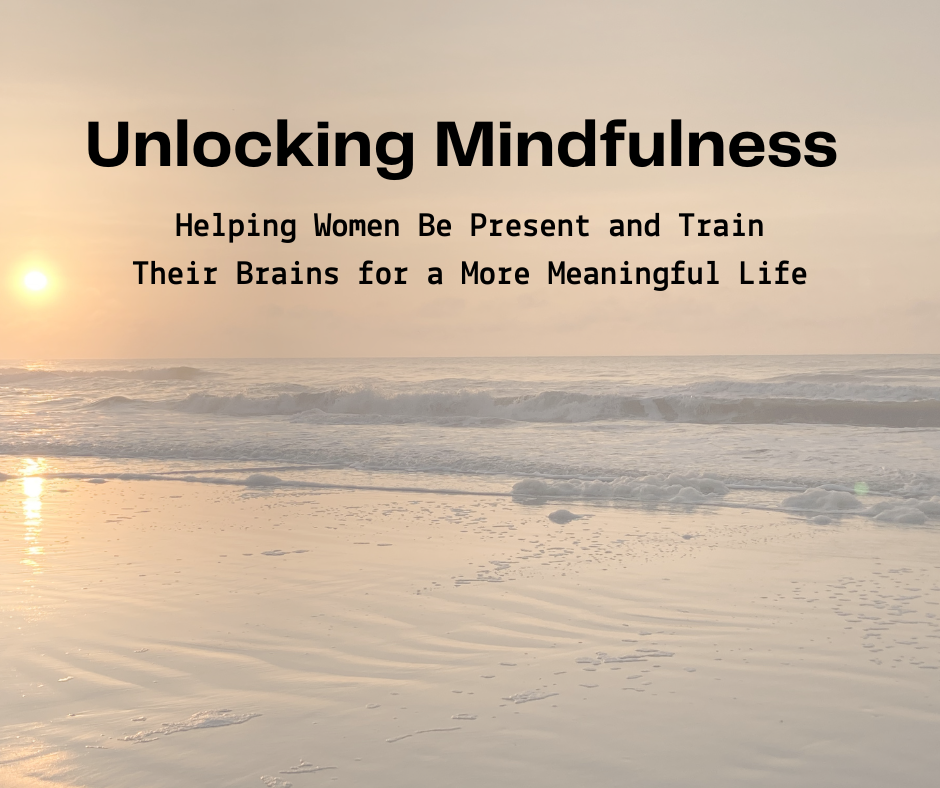Unlocking Mindfulness: Helping Women Be Present and Train Their Brains for a More Meaningful Life

In a fast-paced world filled with distractions, it's easy to get caught up in the chaos. For women seeking a more meaningful life, learning to be present and cultivate mindfulness is essential. In this article, we explore common struggles with meditation and how it can help women train their brains to pause and respond, ultimately leading to a more fulfilling existence.
- Set aside small pockets of time each day for meditation and reflection.
- Use the daily meditation journals to track your progress and experiences.
- Address common struggles by implementing strategies and techniques recommended in the guides.
- Practice brain training exercises to enhance your ability to be present and mindful.
- Follow the workbook exercises to explore and cultivate a more meaningful life through meditation and mindfulness.
- Stay consistent and patient with your practice, knowing that small steps lead to significant
transformations.
The Importance of Being Present
In today's fast-paced world, it can be challenging for women to find moments of stillness and presence. However, cultivating the ability to be fully present has numerous benefits for our overall well-being, writes the author of Mindful Living: Harnessing the Power of Presence. By being present, you can enhance your relationships, reduce stress, and increase your overall happiness.
How often do you find yourself lost in thought or constantly multitasking? Take a moment to reflect on how being fully present could positively impact your life. What would it feel like to truly engage in conversations, savor your daily experiences, and connect with your inner self? Being present allows us to fully experience the richness of life rather than merely going through the motions.
Common Struggles with Meditation
'I just can't seem to quiet my mind during meditation,' is an often-heard complaint. However, it's important to remember that the act of meditation is not about eliminating thoughts but rather observing them without judgment.
Many women struggle with the misconception that they need to achieve a completely blank mind during meditation. Instead, the focus should be on gently redirecting your attention back to your breath or chosen point of focus whenever thoughts arise. Embracing this non-judgmental approach can open the door to a deeper sense of peace and clarity.
How do you currently approach meditation? Are you able to let go of expectations and simply observe your thoughts? Recognize that every meditation session is unique and bring a compassionate attitude towards yourself as you navigate this practice.
Training Your Brain to Pause and Respond
One of the keys to being present is developing the ability to pause and respond rather than react
automatically, reminds the author. Our brains are wired to react quickly to stimuli, often leading to impulsive and potentially regretful actions. However, through mindfulness, we can train our brains to create a space between stimulus and response.
Pause and take a deep breath whenever you feel triggered or overwhelmed. By doing so, you allow yourself the opportunity to choose a deliberate and thoughtful response instead of being caught up in a wave of reactivity. As you practice this pause, notice how it empowers you to become more intentional and compassionate in your interactions.
How often do you find yourself reacting instinctively in stressful situations? What would it look like to incorporate the practice of pausing into your daily life? Challenge yourself to pause and respond instead of immediately reacting, and observe the positive changes it brings.
The Power of Mindful Listening
Truly listening is an act of mindfulness that can profoundly impact our relationships, writes the author. In today's fast-paced society, it's easy to fall into the habit of distracted listening, where we are physically present but mentally elsewhere. Mindful listening involves giving our full attention to the speaker, acknowledging their words, and responding with empathy.
Next time you engage in a conversation, practice mindful listening. Set aside distractions, maintain eye contact, and offer your undivided presence. Notice how this deepens your connection with others and fosters a greater sense of understanding and compassion.
What are some common barriers preventing you from engaging in mindful listening? How can you overcome these obstacles and cultivate the skill of truly hearing others? Embrace the power of mindful listening and unlock a deeper level of connection in your relationships.
Nurturing Your Mindfulness Practice
Consistency is key when it comes to nurturing your mindfulness practice. Find a routine that works for you and commit to carving out dedicated time each day, advises the author. Whether it's five minutes or an hour, prioritize this time for yourself to cultivate a sense of inner calm and presence.
Experiment with different meditation techniques and find the ones that resonate with you the most. Guided visualizations, breath-focused meditations, and body scans are just a few examples to explore. Remember, there is no right or wrong way to practice mindfulness – it is a personal journey unique to each individual.
How can you incorporate more mindfulness into your daily life? What practices do you feel drawn to explore further? Take the first step towards nurturing your mindfulness practice and embrace the transformative power it holds.